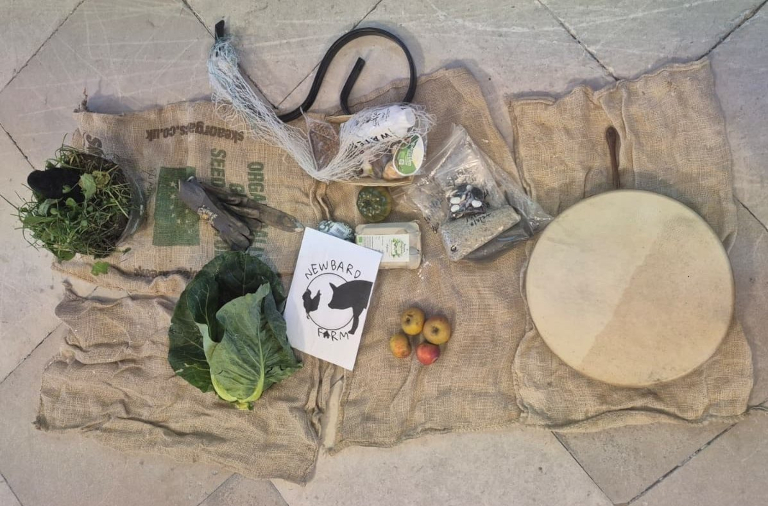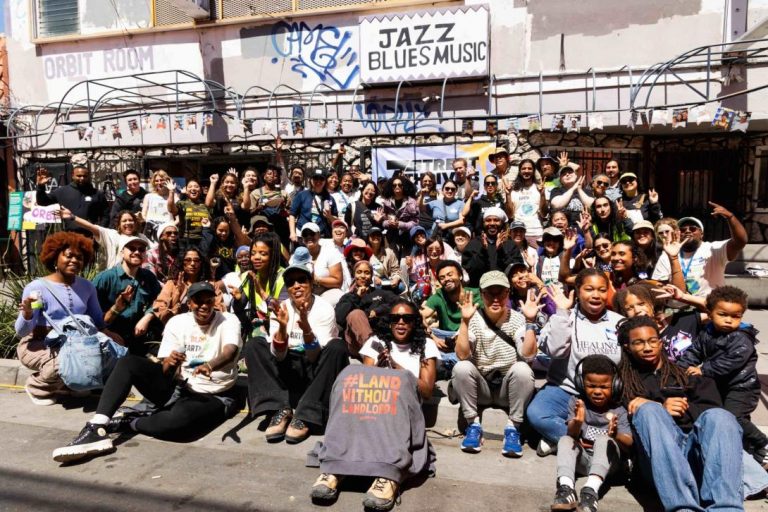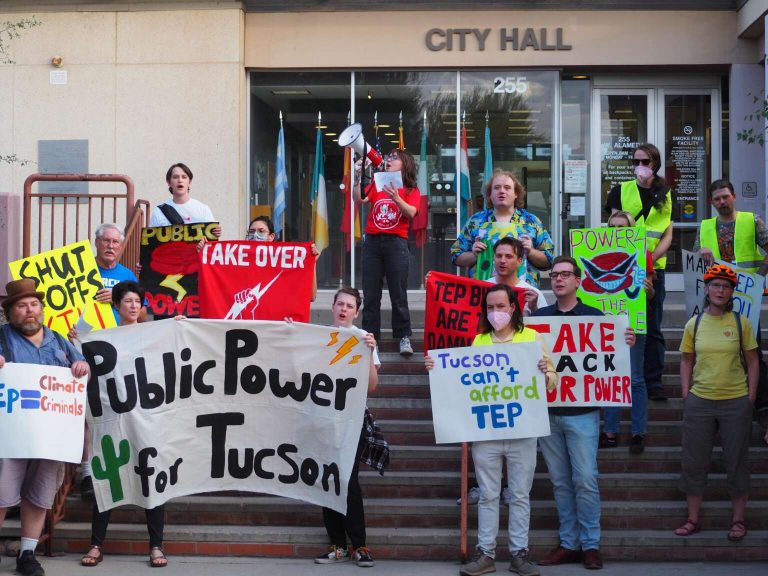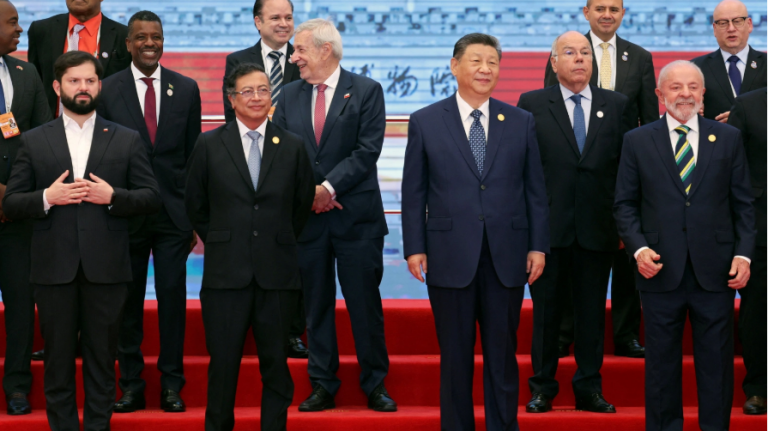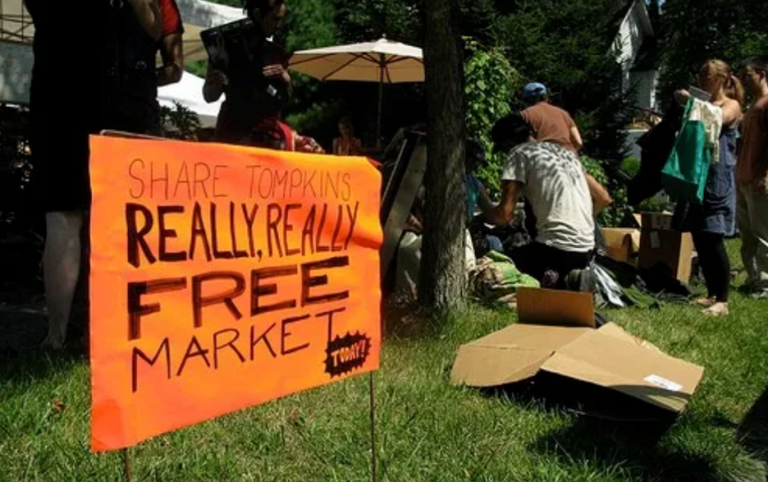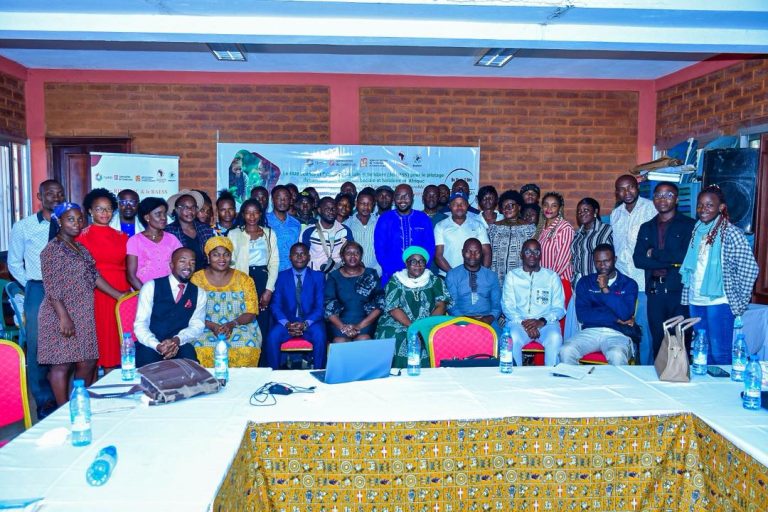Create!
![]() Along with direct action and other forms of resistance, a transformational movement must also have a constructive program that builds new institutions based on the values that the movement aspires to achieve. These may eventually replace the old systems. From small, worker-owned cooperatives to national advocacy groups, hundreds of thousands of people around the country are working to create democratic and sustainable systems that meet the basic needs of all people.
Along with direct action and other forms of resistance, a transformational movement must also have a constructive program that builds new institutions based on the values that the movement aspires to achieve. These may eventually replace the old systems. From small, worker-owned cooperatives to national advocacy groups, hundreds of thousands of people around the country are working to create democratic and sustainable systems that meet the basic needs of all people.
Over a quarter of Americans live paycheck to paycheck and have less than $1,000 in emergency savings. This means there’s no buffer when the car breaks down or an unexpected hospital bill hits. Congress’ cuts to SNAP and Medicaid will worsen this crisis for working families, as millions of people lose money to buy groceries and face higher health-care premiums and less coverage.
In Washington state, advocates and community leaders have stepped up in recent years to enact direct cash programs to support people struggling to make ends meet.
Ireland: Breaking New Ground For The Local Food Movement
Feeding Ourselves is a community of practice in Ireland (CoP) – an organised but informal network of food system animators from production to consumption and all the elements in between – which has been running for some years. Initially it was just a gathering, one that ARC has partnered with many times (e.g. last year’s here). Now, the CoP runs webinars, newsletters and organises events to build its knowledge and action base.
Its most recent event was a big step forward for the good food good farming movement in Ireland.
Crowdfunded Real Estate Projects Bring In Community Investors
January 7, 2026
Sandra Larson, Grassroots Economic Organizing.
Create!
Community Ownership, Crowdfunding, Local Economy, Real Estate
West Oakland’s 7th Street was historically home to a bustling Black business corridor known as the “Harlem of the West.” During the day, it served customers looking for grocery stores, pharmacies, ice cream parlors, and lunch spots. At night it had a legendary blues music scene that flourished from the 1930s through the 1960s. One of that scene’s anchors was Esther’s Orbit Room, hosting the likes of T-Bone Walker, Ike and Tina Turner, Etta James, and many other well-known acts in its heyday.
In the second half of the 20th century, however, the thriving district suffered waves of economic decline, displacement and fragmentation, with the disappearance of wartime jobs and the construction of new freeways and BART tracks cutting right through the neighborhood, leaving a string of vacant or underused properties.
As Electricity Bills Rise, Activists Demand Public Control Of Utilities
January 5, 2026
Derek Seidman, Truthout.
Create!
Data Centers, Electricity, Public ownership, Utilities
Electricity bills for millions of utility customers are skyrocketing across the U.S. while the number of households facing extreme utility debt is mounting. Energy costs are being turbocharged by the AI data center boom, which is prolonging the burning of fossil fuels in the face of intensifying climate chaos. Overseeing all this is a powerful regime of investor-owned utilities that dominate our energy system. These for-profit corporations own and control the basic infrastructure we all depend on.
Their executives and shareholders profit by raising electric rates or skimping on maintenance. And now, private equity firms are gunning for utilities.
Refugees Are Developing A First-Of-Its-Kind Community Land Trust
January 5, 2026
Roberto Camacho, Next City.
Create!
Community development, Refugees, San Diego, Urban Design
When Ramla Sahid was five years old, she and her family fled Somalia to escape the civil war that had engulfed the nation. Nearly 35 years later, living in San Diego as a refugee, she’s working to create what might be the country’s first community land trust for immigrant and refugee families.
In 2015, Sahid founded the Partnership for the Advancement of New Americans (PANA), a nonprofit staffed by refugees and working toward building economic, social and civic power for refugees and displaced communities around San Diego.
China / United States – Latin America And The Caribbean
January 1, 2026
Sergio Rodriguez Gelfenstein, Workers World.
Create!
Caribbean, China, Development, Foreign Relations, Latin America
As if by fate and unplanned twists of history, at the very moment that Trump was threatening Latin America and the Caribbean (LAC) and Marco Rubio was making clear his conviction that the Western Hemisphere is Washington’s property, thus reviving the Monroe Doctrine and its Trump corollary for the 21st century, the government of the People’s Republic of China released its third document on its foreign policy toward the region.
In 2008, the Chinese government published the first Document on China’s Policy Toward Latin America and the Caribbean, in which it set out the objective of establishing a China-LAC Comprehensive Cooperation Partnership based on equality, mutual benefit and joint development.
Gift Economies And Cultural Commons
In the late 1970s, well before I became interested in the commons, one of the most formative books that I encountered, at age 23, was Lewis Hyde’s The Gift: Imagination and the Erotic Life of Property. I first read an excerpt in the Whole Earth Review – the countercultural quarterly edited by Stewart Brand – and shortly thereafter the book. I was thunderstruck by the invisible social relationships wrought by gifts and their karmic ramifications, all of which Hyde brought vividly into view.
Drawing on anthropologist Marcel Mauss’ famous 1923 book on gift-exchange, Hyde took the idea much further, showing how gift exchange is a ubiquitous social phenomenon for forging and maintaining reciprocal relationships.
‘Phytomining’ Could Put The Green In The Green Transition
January 1, 2026
Sarah DeWeerdt, The Tyee.
Create!
Environment, Green Transition, Human Rights, minerals, Mining, Phytomining
Alpine pennycress is a charming little plant. Its low-growing rosette of green leaves is topped by leggy stalks bearing clusters of pinkish-white flowers. As they develop, these flowers transform into beautiful flattened seed pods that, in the words of botanist Liz Rylott from the United Kingdom’s University of York, “resemble a British old penny.”
But alpine pennycress (Noccaea caerulescens) is notable for far more than its penny disguise. The plant is one of a select group — representing just 0.21 per cent of the world’s known vascular plant species — that have evolved the ability to pull impressive amounts of valuable metals out of the soil.
Keeping Power Utilities In Corporate Hands Doesn’t Make Sense
December 31, 2025
Liza Featherstone, Portside.
Create!
Finance and the Economy, New York (NY), Privatization, Public Utilities
All over the country, Americans are struggling to pay their utility bills. In the Hudson Valley, the situation is particularly dire, with some ratepayers coping with surprise monthly bills of thousands of dollars. It doesn’t have to be that way, according to the region’s democratic socialists, who are leading a fight to lower prices.
A bill introduced by Sarahana Shrestha, a democratic socialist assemblywoman in Assembly District 103 in the Mid-Hudson Valley, and her state senate colleague, Michelle Hinchey, calls for a state takeover of the utility company serving the area.
Basic Income In Canada Is Closer Than You Think
Although few people would explicitly declare that poor people are morally deficient, our welfare systems are nonetheless designed around suspicion rather than support.
Like many social assistance policies, opposition to guaranteed income is driven by a deep-seated fear of fraud — of “freeloaders” benefiting from the taxes of hard-working, morally upright citizens. Our collective delusion that we live in a meritocracy is operationalized into a punitive framework that rationalizes who deserves help and who does not.
As a result, we spend enormous administrative effort policing eligibility, while leaving many people without adequate help.
Managing Water Differently: Algeria Facing Hydrological Extremes
December 30, 2025
El Habib Ben Amara, Resilience.
Create!
Algeria, climate crisis, Transformation, Water
What if, in Algeria, water were no longer seen solely as a scarce resource to exploit or a threat to control, but as an ecological and economic capital to preserve and develop?
Across the country, the same paradox is emerging: prolonged droughts and declining groundwater levels, punctuated by sudden, devastating floods. In a matter of hours, entire neighborhoods in Algiers, Oran, Béjaïa, or Skikda can be submerged, while a few weeks later, water restrictions are imposed. This contradiction is not merely a climate problem—it reveals a deep disruption between Algerian territories and their natural water cycles.
Worker-Owned Cooperatives Are Rising In New York
December 28, 2025
Camille Luong, The Chief.
Create!
Brooklyn, New York City (NYC), Worker Cooperatives, Worker Ownership, Worker Rights and Jobs
At most workplaces, there is a boss and an employee. The boss calls the shots — how much employees get paid, what drinks get put on the menu, what the exterior and interior design of the workplace will look like and more. If workers get burnt out, they either get fired or quit, with little say on how things get run or how they could change.
What if, instead, the binary between worker and owners was shattered, and workplaces were run collectively by worker-owners?
This was the question that Boyfriend Co-op, a lesbian cafe-bar in Bushwick, Brooklyn, sought to answer when they opened nine months ago, joining a movement of more than 85,000 worker-owner cooperatives around the world.
Social And Solidarity Economy: African Youth Prepare Initiatives On Continental Scale
December 27, 2025
Intercontinental Network for the Promotion of Social and Solidarity Economy.
Create!
Africa, Economic Democracy, Solidarity Economy, Youth Activism
This initiative is part of the international project ‘Regionalisation of the UN resolution on the promotion of the Social and Solidarity Economy’, which aims to adapt and operationalise international commitments to the SSE in African contexts. In a continent where young people represent a major demographic force, but also a socio-economic challenge, the social and solidarity economy (SSE) appears to be a structuring response. Based on solidarity, democratic governance, territorial anchoring and inclusion, it is a recognised lever for decent job creation, social innovation and economic resilience.
Mali Recovers Over USD 1.2 Billion After Renegotiating Mining Deals
Mali’s government announced earlier this month that it has secured more than 761 billion CFA francs (about USD 1.2 billion) in unpaid revenue from mining companies following a comprehensive audit and renegotiation of contracts in the extractive sector, making it one of the most significant resource governance interventions in the country’s recent history.
Mali is one of the world’s top 20 gold producers and Africa’s third largest gold producer and it relies heavily on mining as a pillar of its economy. Yet, in light of the disparity in the amount of minerals exported and revenue that Mali was obtaining for them, authorities concluded that the country was not receiving its fair share of benefits from its natural resources.
Rural County Takes Notes From Iceland’s Drug Prevention Model
December 22, 2025
Anabel Peterman, Next City.
Create!
Drugs, Harm Reduction, Health Care, Kentucky, Opioid crisis, Rural
While serving a three-year prison sentence for meth trafficking, Matewood Gerald got the call that she’d soon be a grandmother.
Gerald started abusing drugs when she was just 13, and she says everyone in her small town of Irvine, Kentucky, has seen her at her worst. But she had to become the best version of herself for her granddaughter.
“I would lay there and think, is she gonna like me? Am I going to be perfect whenever I get out?” Gerald recalls.
Less than five years later, she is a peer support specialist with Mercy Health Marcum and Wallace Hospital in rural Irvine.


